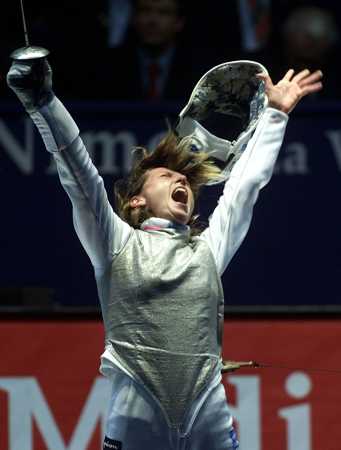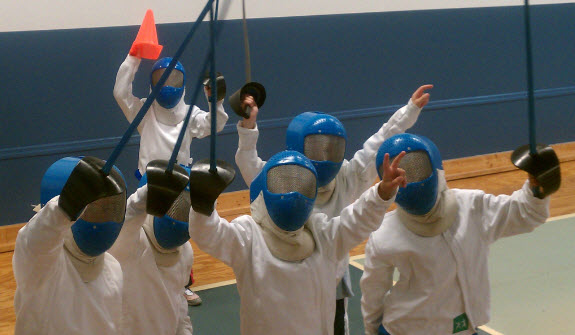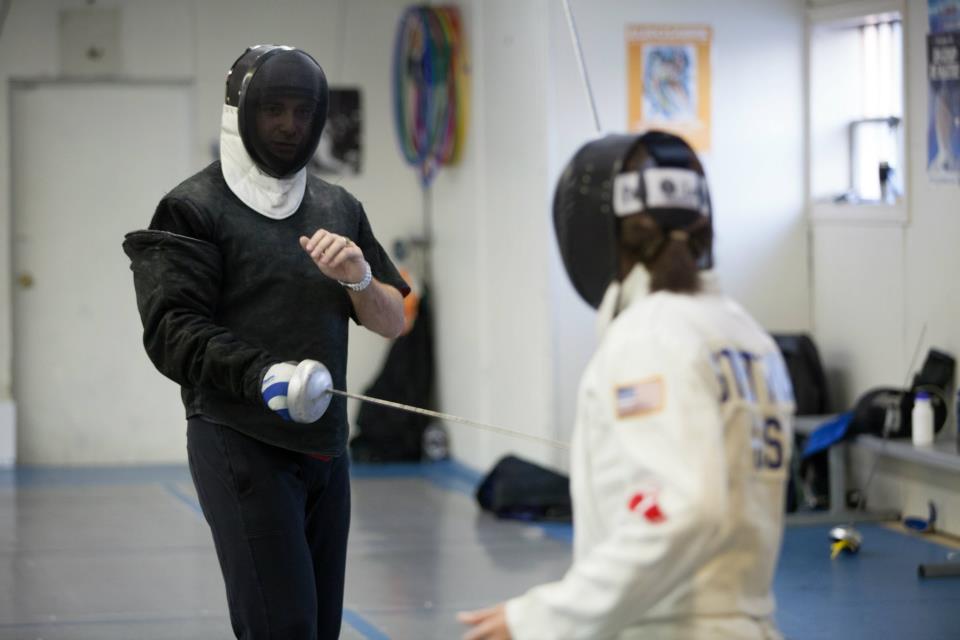This weekend I faced a teaching moment that came from an unlikely place.

My sons were all taking turns at a video game. My oldest was playing his turn and was behind by two scores with the clock winding down. His younger brother commented (a couple of times) “you’re going to lose”. It wasn’t said in that sarcastic sing-song “nyah nyah” voice that kids sometimes use – it was matter-of-factly stated.
I immediately shuttled him into another room and took him to task.
In pushing forward the opinion that his brother was going to lose and that the loss was already etched in stone, he did a huge disservice. There were two wrongs here: The first was needling his brother. As brothers, they are a competitive bunch and they will find the chinks in each others armor and exploit that. The second was worse in my opinion: he was putting forward the idea that it was okay to just give up.
Everyone who watches sports can point out some great comebacks that they’ve witnessed. If you’re fortunate then you’ve participated in a sport where you were able to engineer such a comeback yourself. If you’ve played sports long enough, then the tables have been turned on you at some point!
Being a UNC graduate, the 8 Points in 17 Seconds story is part of our lore. In the time before the 3 point shot, UNC was able to stay in the fight and win the game with only a few seconds on the clock:
Sports are filled with the mantras – from “never give up” to “finish the drill” to “play to the whistle” (and “don’t look at the box!”) These mantras guide us to do our best until the very end, to scrap and claw our way to victory if we are behind and to push and maintain a lead if we are ahead.

So why did I get so keyed up off of a kid’s video game?
That’s something I had to think about for a while. What had made that offense not just ribbing between brothers but something that needed me to step in and coach my son? As I thought more about it, I realized that it all came back to the language and the idea of living and practicing how we’re going to play.
Language is important.
I’m a big believer in self-talk. I talk to myself (usually in my head) all the time during competitive events. Be it pick up basketball, rec league hockey, or a fencing tournament – I’m talking myself through everything. The running commentary in my head bounces back and forth between what I’m going to do and what needs to happen in the game. I’ve trained myself over time to make sure none of that self-talk is negative.
I’ve found that when I let the negative self-talk into my game, my performance gets significantly worse. (Looking for research on this, it seems like my experience is the norm: http://www.unicommons.com/node/22180).
One of my sons is naturally a scrapper – he’s the one I know is going to work and bounces back. Things don’t come easy to him, but he wants to master everything and works for it. Another one picks up skills quickly, but because things come easier to him to begin with he has a tendency to get frustrated when things get difficult. In him, I’m seeing the beginnings of that negative talk.
My job, now that I’ve seen that there’s a tendency towards the negative self-talk is to defeat it and teach positive talk. This was one of the first situations where I saw an opportunity.
By letting the needling continue – “You can’t win, just quit the game” – I’m giving negative self-talk a chance to develop. Even if it is in something as innocuous as a video game, I don’t want it in my house.
Belief is important.
Some thoughts have a certain sound, that being equivalent to a form. – Dune
Back to the research on positive self-talk, positive thinking, and imagery. There is a considerable body of knowledge showing the benefits of imagery and positive thinking in sports. When the athlete can imagine themselves being successful and see, in their minds eye, that success, then that success can come easier.
This doesn’t just apply in sport, but in other aspects of life as well.
I don’t mean this to be all “The Secret” and that if you just imagine piles of money you’ll suddenly get rich or win the lottery. I mean this to be that if there is positive thought and imagery surrounding what you want to accomplish, you are better prepared to take advantage of the opportunities that creep up.
The overall message is to embrace opportunity and work for success. Do not let fear of failure drive you but rather let the taste of victory stay with you. Embrace the form and feeling of any little victory you have and let that drive you through your next challenge. Eventually the victories will get larger and the challenges more difficult until you reach a plateau or your peak.
Early on in life I want all of my children to embrace their challenges and fight through them to improve themselves and gain the satisfaction of success obtained through hard work. That starts with never belittling their brothers’ chances and never believing that loss in inevitable.
And to bring it all back to fencing, here’s a great example of a last second comeback by Kolobkov at the 2008 Challenge Bernadotte. Thanks to Juan Carlos Blázquez on Facebook for the link. If you want to skip to the comeback, jump to 6:46 on the video.







9 Comments
Comments are closed.